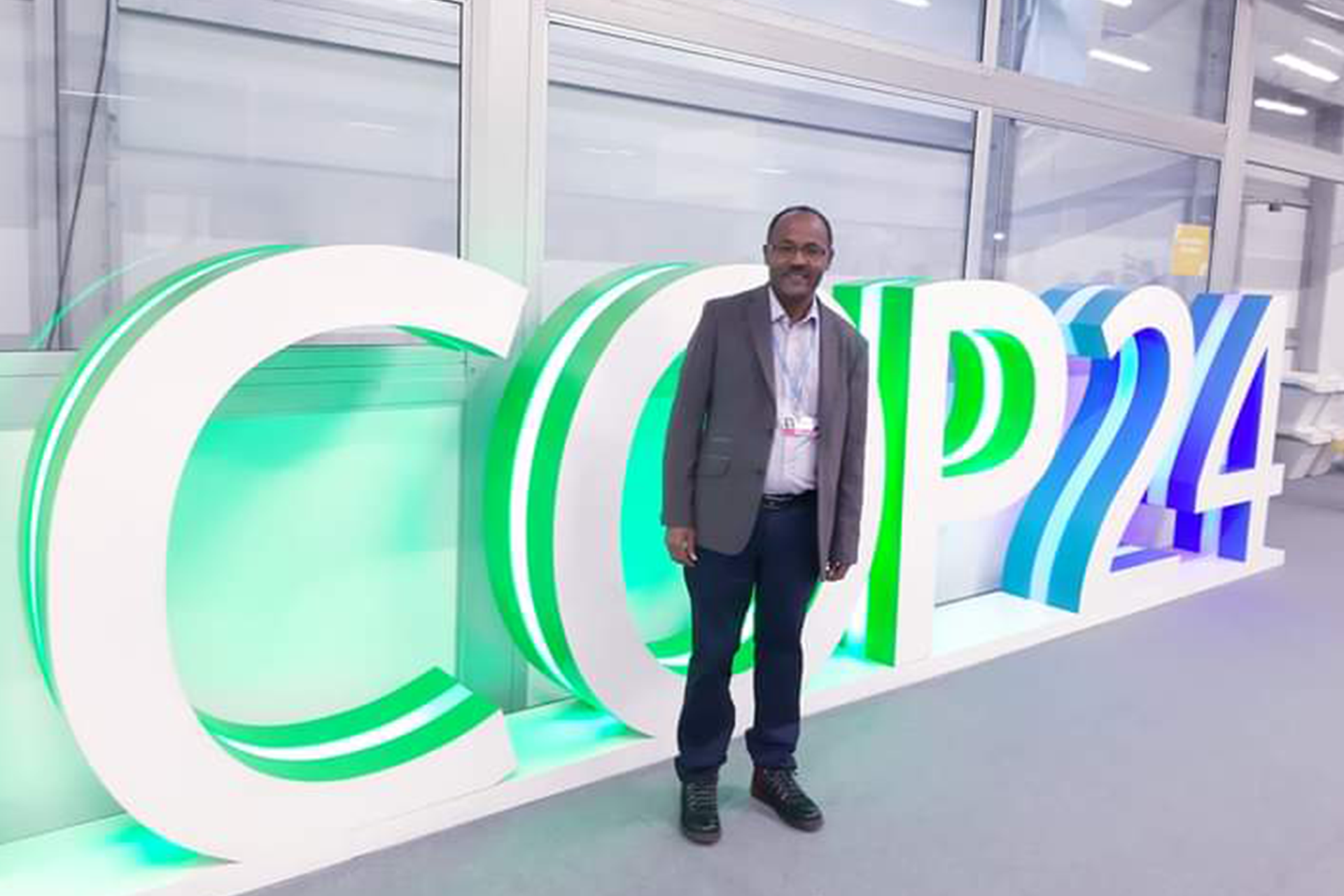What are you doing now?
My work is mainly that of the research and development of environmental policy, laws, and standards in Ethiopian Environmental Protection Authority. In this role I immensely contribute to research, policy and law development, climate change and environmental multilateral agreements negotiations, strategy formulation, planning, training provision and advising government and other stakeholders. relationship building and problem solving. One of my main objectives is to transform national environmental law development and enforcement process with other experts in collaboration.
I served as the Directorate General in the Environment, Forest and Climate Change Commission of Ethiopia. I had also served as UNFCCC Technology Executive Committee member dealing with climate change policy development wing representing the African Negotiators. Now I am serving as the United Nations Environment Programme (UNEP) Montevideo Environmental Law Programme National Focal Point, Nile Basin Regional Wetlands Policy Experts Working Group Member, National Lead Climate Change Negotiator in the UNFCCC, and engage in diverse at national and multilateral environmental law research and development initiatives and coordinate numerous policy dialogues.
In teaching and research, I am affiliated to the African Water Excellence Centre, Wachemo University School of Law, Hawassa University School of Law, Debra Berhan University School of Law, the Addis Ababa University Law and Governance Collage and Mekelle University School of Law. Since September 2021, I am board member for Asossa University and GIZ Sustainable industrial Cluster Advisor for GIZ/EPA in environmental law development and enforcement
What attracted you to your course, and to Kent?
I have earned this MSC from University of Kent in Conservation and International Wildlife Trade. Then Based on a comparative evaluation of Ethiopian and British policies and laws, I did my PhD research in the policy and law response needed to halt water and environmental security challenges in Ethiopia and beyond. I was mainly attracted by the academic model that was interdisciplinary nature which comprises science, policy and law which are equally crucial to address contemporary environmental challenges. It was also quite welcoming green and cultural diverse place, and it directed a solid groundwork to what I followed in future life.
Which aspects of your degree did you enjoy the most, and why?
I was attracted both by the rich research and teaching culture we had for the completion of my degrees (MSC and PhD.) Having diverse skill training I have taken were helped to open my horizons in negotiations and dialogue as I had never practised before. I also loved the real-world features of work which opened a wide avenue of knowledges in environmental science, policy, and law. I enjoyed most interdisciplinary nature of my both degrees
Which skills/knowledge did you learn on your course that you use most now in your career?
I can surely say critical, interdisciplinary, and systemic thinking. The skills I most use now include research and study, environmental policy formulation and dialogue, multilateral environmental and climate change law development and negotiations, advisory, environmental law development, and enforcement and other related. In my present career the skills I acquired helped a lot to come up well articulated opinions or decisions.
Are you still in touch with any of your fellow students?
Through the Kent alumni page and social media, I confirm that I’m still in touch. I have also personal connections with some fellow Ethiopians who took the course during my study period.
Could you describe a typical day in your current role?
Within June 2022, I was called by the Permanent Court Arbitration as expert witness in which Ethiopian Government is accused in relation to environmental impact assessment decision. In the event part of my PhD thesis being produced by the claimant as evidence that was indeed amazing!
What is your favourite memory of Kent?
The University of Kent is a unique place for teaching and a learning environment I have ever experienced. The Templeman library and digital resources enable everyone to conduct his or her research. In addition, the greenness and local peoples support are never forgettable.
What advice would you give to somebody thinking of coming to Kent?
I would strongly advise any potential students to consider the University of Kent as one of unique Higher institution for research and study.
How would you describe your time at Kent in three words?
Build students’ horizons.


I am working at University of Kent where I completed my PhD. I am so glad to know that my fellow Ethiopia had a great learning experience at Kent
Dr. Ayele is one the few professionals, I know, who uses his knowledge and skills to solve practical problems.
Very good my bro continue the God keep you.
He is among one of the best professional in the fields of law and environment. He brought the theories to the ground.
That’s sound great Doc